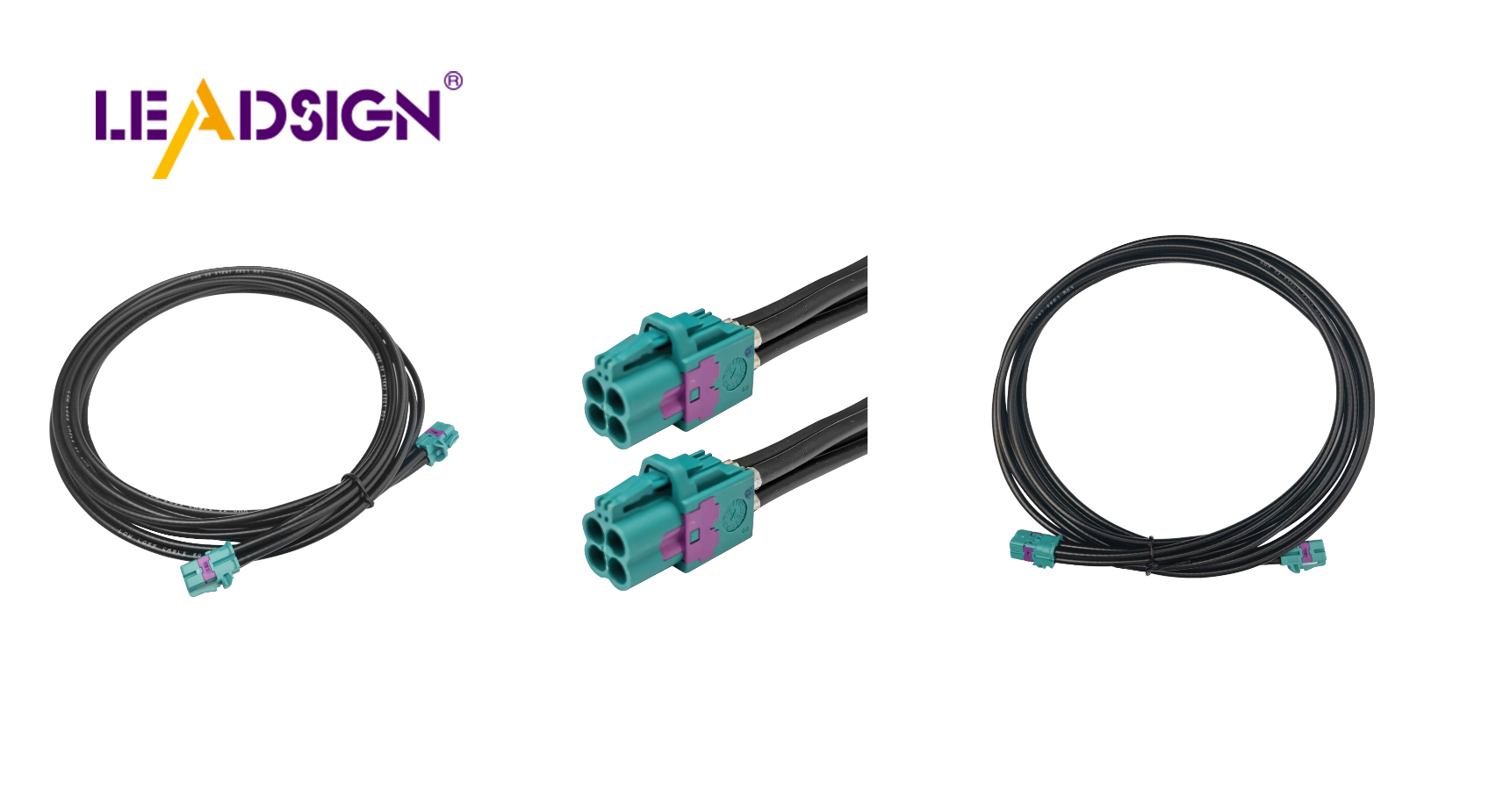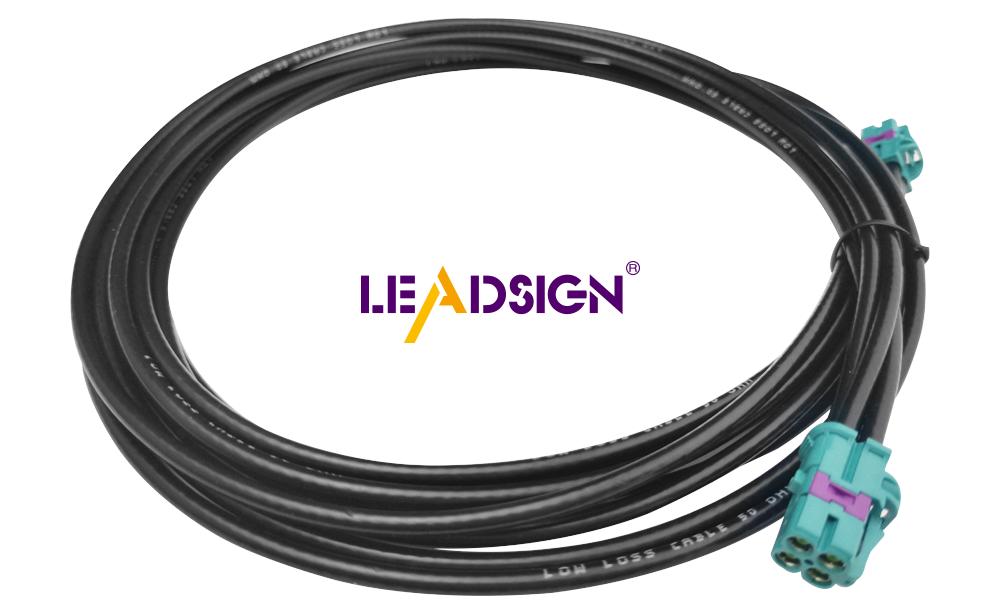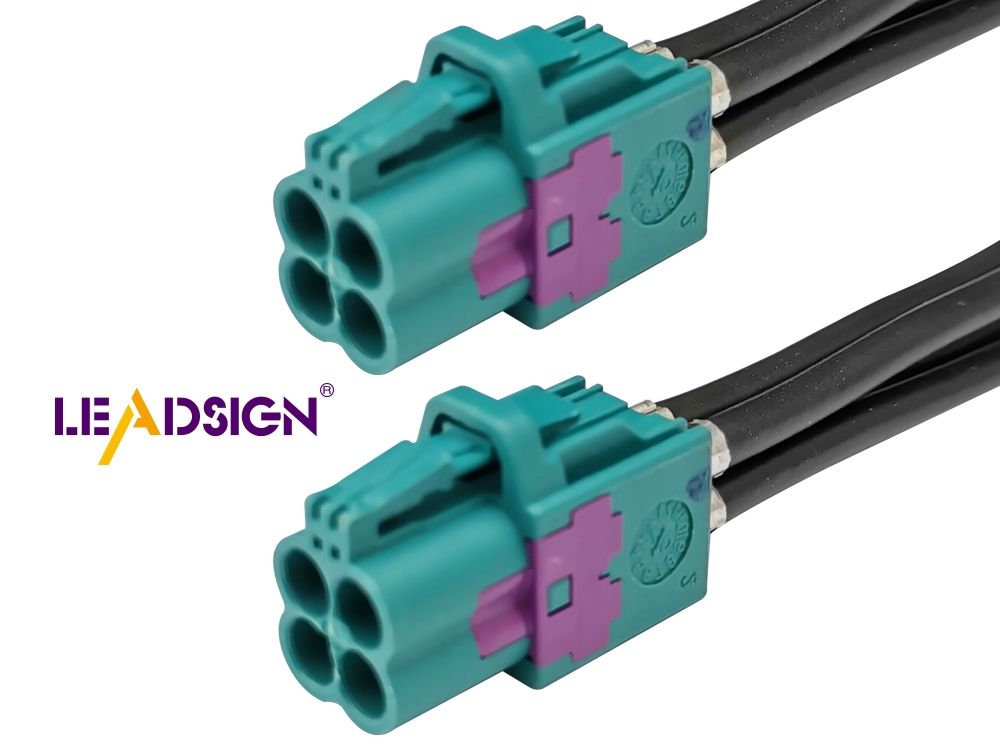Automotive Electrical Connectors Types for Every Need

Choosing the right automotive electrical connectors types is very important. These connectors help power and signals move smoothly in a car, which affects how well the car works and keeps it safe. For example, a bad connector can cause problems in important systems like brakes, which is dangerous. Important things to think about are:
Durability: Ensures it lasts long.
Compatibility: Fits with current systems.
Ease of Installation: Makes setup easy.
Knowing different types of automotive electrical connectors helps cars be safer and work better.
Overview of Automotive Connectors
Definition and Purpose
What are automotive connectors?
Automotive connectors join electrical circuits in cars. They help power and signals move smoothly between systems. These connectors are very important in cars, helping with electrical connections. They make things like ignitions, lights, GPS, and entertainment systems work.
General purpose and function in vehicles.
The main job of automotive connectors is to connect circuits safely and well. They are like heroes in cars, making sure all parts get power and signals. For example, pigtail connectors link wiring harnesses to parts like sensors or switches. Without them, modern cars would not work right. They help engines run and keep safety features working.
Importance in Automotive Systems
Role in electrical systems.
Connectors are key in car systems. They make sure everything works by keeping connections strong. 3-Pin automotive connectors give secure links for repairs. These ensure power flows without stopping to important parts, keeping the car running well.
Impact on vehicle reliability and safety.
A car's safety depends a lot on its connectors' quality. Good ones stop failures that might make driving unsafe. They keep all systems from lights to safety features working right. By holding strong connections, they help the car stay reliable so everyone stays safe.
Types of Connectors

Blade Connectors
What they are and where used.
Blade connectors have a flat metal piece. It fits into a slot. They connect electrical parts in cars well. You find them in car radios, lights, and low-power uses. They are quick to connect, so many cars use them.
Good and bad points.
Good Points:
Easy to Use: Simple to plug in.
Useful: Works for many things.
Cheap: Not costly and easy to get.
Bad Points:
Low Power Limit: Not for high power needs.
Can Get Loose: Might not stay tight if not fixed well.
Pin Connectors
What they are and where used.
Pin connectors have pins that fit into sockets. Used in car wiring and electronics. They keep important systems like engines connected safely. Pins send signals and power, making them useful in cars.
Good and bad points.
Good Points:
Strong Fit: Pins hold tight in sockets.
Toughness: Made for rough car places.
Changeable: Comes in different styles for needs.
Bad Points:
Hard Setup: Needs careful fitting.
Pricey: Costs more than simple types.
Socket Connectors
What they are and where used.
Socket connectors work with pin connectors. They hold pins for strong links in cars. Found in dashboards, engines, and fun systems. Sockets keep electric parts working well together.
Good and bad points.
Good Points:
Trustworthy Link: Keeps connections steady.
Fits Many Pins: Matches with different pin setups.
Protection Built-In: Guards against weather problems.
Bad Points
Big Size: Takes up more room than some others.
Tough to Install: Hard to put in small spaces sometimes.
Knowing these connector types helps pick the right one for cars, keeping them safe and working well.
Automotive Electrical Connectors Types
Different types and their uses.
There are many kinds of automotive electrical connectors. Each one is made for a special job in a car's system. Knowing these helps pick the right connector for any car task.
Plug and Socket Connectors: These are easy to unplug and plug back in. They are great for parts that need fixing often, like lights.
Pigtail Connectors: These act as links in a car's electric system. They join wires to things like sensors, helping power move smoothly.
High-Speed Razor Beam Connectors: These connect without needing separate parts, saving money. They work well with fast data systems like car entertainment.
mPOWER Ultra Micro Power Connectors: These tiny connectors fit where space is tight but power is needed. They keep working even when space is small.
Each connector type helps keep a car's electric system working well and safely. Picking the right one makes sure everything runs smoothly in different car tasks.
Application-Specific Recommendations

High-Vibration Areas
Best connector types.
In places with lots of shaking, connectors need to be tough. TE Connectivity DEUTSCH DT Series connectors are great here. They are strong and last long. Amphenol AT Series connectors are also good, keeping out dirt and water.
Important features.
When picking connectors for shaky spots, look for:
Durability: Strong parts that don't break easily.
Secure Locks: Stops them from coming apart when shaking.
Environmental Sealing: Keeps dust and water out.
"For more help on car connectors, check our guides or talk to our experts at Essen Deinki." - Essen Deinki Team
Wet Places
Best connector types.
Water can harm electric parts. Weather Pack connectors keep water away well. They seal tight, perfect for wet places. Metri-Pack connectors work too, made for good performance in damp spots.
Important features.
Look for these in water-safe connectors:
Waterproof Seals: Blocks water from getting in.
Rust Resistance: Stops rust and damage.
Strong Build: Lasts a long time.
High-Power Uses
Best connector types.
High-power needs strong connectors. Molex MX150L Series connectors handle big power well. They fit many car uses easily. Delphi GT Series connectors are also known for being strong and handling high power.
Important features.
For high-power needs, focus on:
High Current Rating: Handles lots of power.
Heat Resistance: Stays cool under heat.
Secure Links: Keeps power flowing steady.
Picking the right connector helps cars work better and stay safe. Knowing what each place needs helps choose the best one for the job.
Important Things to Think About
Material
Why material choice matters.
Picking the right stuff for automotive electrical connectors is super important. The material decides how long the connector lasts and works. Good materials stop rust and handle tough conditions. This keeps car systems working well over time. Engineers must choose wisely to make connectors last longer and stay safe.
Common materials used.
Many materials are used in car connectors. Copper alloys are liked because they carry power well and are strong. They help power move easily. Plastic, like polyamide, gives insulation and guards against weather. These keep connections safe. Knowing these helps pick the right connector for each job.
Size and Compatibility
Getting the right fit and work.
Connector size is key for working well. Right-sized ones fit snugly, stopping disconnects or failures. Engineers need to measure carefully to match car system needs. This makes sure connectors work best, helping cars run better.
Matching with current systems.
Compatibility is very important when picking connectors. They must match a car's systems to work right. Wrong ones can cause problems or dangers. Car engineers should check that chosen connectors fit the vehicle’s wiring and parts for smooth operation.
Easy Installation
What affects installation?
Many things affect how easy it is to install automotive connectors. Design complexity can change how fast they go in place. Simple designs with clear steps make it easier to install them quickly. Where you put them in the car also matters for ease of setup.
Tips for easy installation.
For easy setup, try these tips:
Pick user-friendly designs: Go for simple-to-use connectors.
Prepare the area: Clean and clear space before starting.
Follow maker instructions: Stick to what the manufacturer says.
Use proper tools: Have the right tools ready for secure fitting.
By thinking about these points, car experts can choose and set up connectors that boost performance and reliability.
Choosing the right car connectors is very important. They help power and signals move smoothly in cars. This affects things like headlights and safety systems. Important things to think about are how strong they are, if they fit well, and how easy they are to set up. Knowing these helps make a car's electric parts work better.
"Connectors are key in cars, helping power and signals move." - The Role of Connectors in Cars
Picking the right connector makes sure cars run well and safely. They are the hidden heroes of car design.
See Also
Understanding HSD Connectors Essential for Automotive Applications
Fakra Connectors: Key Components in Today's Vehicles
Benefits of HFM Connectors for Automotive Solutions

